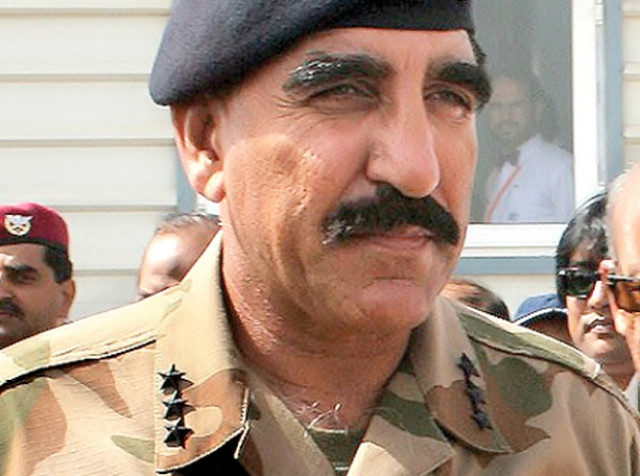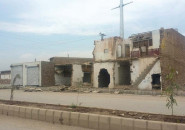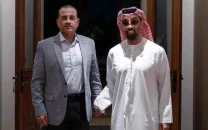US, Pakistan spy meet shrouded in silence
Lt Gen Islam, David Petraeus make little progress on thorny issues.

Lieutenant-General Zaheerul Islam, who was named to head the Inter-Services Intelligence (ISI) in March, on his first official visit to Washington met on Thursday with CIA Director David Petraeus at CIA headquarters.
Ahead of his visit, Pakistani officials said Islam would call for an end to US military drone strikes in volatile areas bordering Afghanistan and push for a sharing of technology and intelligence. The public preview of Pakistani demands of Petraeus appeared to have displeased US officials, who pushed back at the notion they might cede to Pakistani requests.
A Pakistani official, on condition of anonymity, told The Express Tribune that the issue of drones was raised in multiple meetings, and that Pakistan has presented a counterproposal on using F-16s. “There was no compromise on accepting drone attacks.” The official said that on the whole, there was a better understanding of Pakistan’s security concerns.
Another issue that has dominated the US-Pakistan relationship has been the contentious issue of the Haqqani Network. US officials have blamed the group, believed to be based in North Waziristan, for multiple attacks on coalition forces and the US Embassy in Kabul. The US Congress has introduced a legislation asking Secretary of State Hillary Clinton to label the Haqqani Network as a foreign terrorist organisation. Another source familiar with the discussions added that the US was told that if it wanted to label the Haqqani Network a foreign terrorist organisation, it would be Washington’s call, and Pakistan would not stand in its way.
‘Substantive and productive talks’
A senior US official said that discussions between General Petraeus and General Islam were “substantive, professional and productive.”
Speaking to The Express Tribune, the official said that “the talks provided an opportunity to discuss a number of proposals on how far we can enhance our joint efforts to fight terrorism.” The official added that “both leaders reaffirmed their commitment to work together to counter the terrorist presence in the region that threatens both the US and Pakistani national security.” (With additional input from agencies)
Published in The Express Tribune, August 4th, 2012.


















COMMENTS
Comments are moderated and generally will be posted if they are on-topic and not abusive.
For more information, please see our Comments FAQ